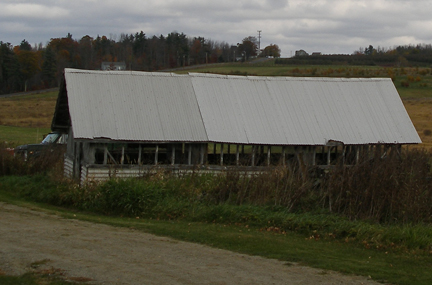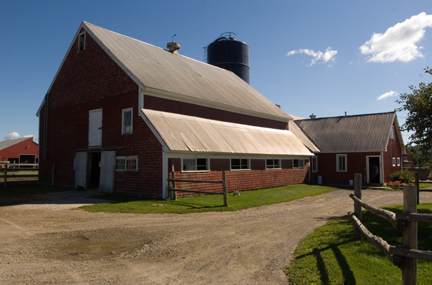Hantavirus in Maine 2012: Reducing the Risk
Anne Lichtenwalner, DVM PhD, Director: University of Maine Animal Health Laboratory, Cooperative Extension and Department of Animal and Veterinary Science

Human cases of hantavirus respiratory syndrome are seen periodically, and have been diagnosed in Maine. It’s a good idea to review how to minimize any risk to humans due to this disease.
It simply boils down to keeping rodents out of your house, barn or camp. If you are going into a camp or other building (shed, garage, etc.) that may have rodents living in or around it, wear a mask. Open the door and let it air out for 30 minutes before you go in. Then, spray things down with a dilute bleach solution, followed by mopping or sponging all surfaces to remove the solution. Avoid breathing the dust: don’t sweep or vacuum! This is what can carry hantavirus into your respiratory system, which is associated with the dangerous form of hantavirus in humans. See the Maine Center for Disease Control and Prevention’s Zoonotic – Hantavirus (Hantavirus Pulmonary Syndrome)for details about cleaning areas where you think mice have been
If you think there are rodents in your home, you can use traps, bait, or other methods to reduce them (a highly motivated cat works very well, too!). Usually you will know — by a musty smell, the small dark pellet-like droppings, or characteristic gnaw-marks in food packaging/walls — that rodents are resident in your home or barn. You’ll almost never see them — if you do, the problem is likely greater than you would think.
Prevention is the best cure for rodent infestation. How? Seal up uncontrolled entry: patrol the premises, find gaps in foundations, baseboards, walls, cabinets etc. and use a rodent-proof (metal or concrete) method for patching. Many older homes are impossible to seal up. What then? Reduce the attraction: keep all food in glass or metal containers, or in the refrigerator/freezer. Use or clean out drawers and closets frequently enough to disturb any nesting rodents. Use a smell disincentive for rodents, such as mothballs, fragrant oils, dryer non-static sheets, etc What about the barn? A small population of rodents is normal on a farm. However, they should never have access to stored animal feeds. If you order in bulk, check your feed bins frequently for holes (which can lead to mold problems, not just rodents). If you purchase feed by the bag, store it in metal or thick plastic cans that seal tightly. Always close them carefully, and always clean up any spilled feed. Your livestock should eat the grain quickly; grain in feeders is also a powerful rodent attractant. Chicken feeders that can be hung from the ceiling are helpful: you may need to put a rodent deflector on them. There are even chicken-activated feeders that close when the chickens aren’t actively feeding . (see the “Rodent resistant chicken feeder” video on YouTube). Installing an automatic chicken coop door to a well-sealed coop may decrease the rodent problem, too.
Remove any clutter in the yard that might be home to rodents. Keep a well-mowed zone, or open gravel, of several yards around your home, barn or camp; rodents dislike travelling over open spaces.
|
|
|
In some cases, the only effective solution is a cat: but be sure the cat is vaccinated, spayed/neutered, and healthy. A population explosion of cats may solve your mouse problem, but will bring lots of other problems.
There are both private pest control services and also some public resources, such as your local Cooperative Extension office, the Maine Department of Agriculture or the USDA, who may be able to help you with stubborn rodent problems. They can assist you with the choice of solutions for your problem. Don’t forget that any effective rodenticide (rodent poison) also carries some risks: pet, wildlife or child exposure to unintended toxicity. These products must be used carefully and disposed of properly.
Should you be successful in trapping and in cleaning up any rodent debris: how do you dispose of the dead rodents or cleaning materials? First, wear gloves and a mask when handling any potentially infected materials (including dead rodents). Cleaning implements can be disinfected with dilute bleach. Bag up the dead rodents and contact your local health official about responsible disposal.
The risk of human hantavirus disease is new in Maine, but the other problems associated with wild rodents in Maine homes, farms and camps have been with us a long time.
See Maine Public Health: Blog of the Maine CDC, Maine’s Public Health Agency for news releases for Maine.


